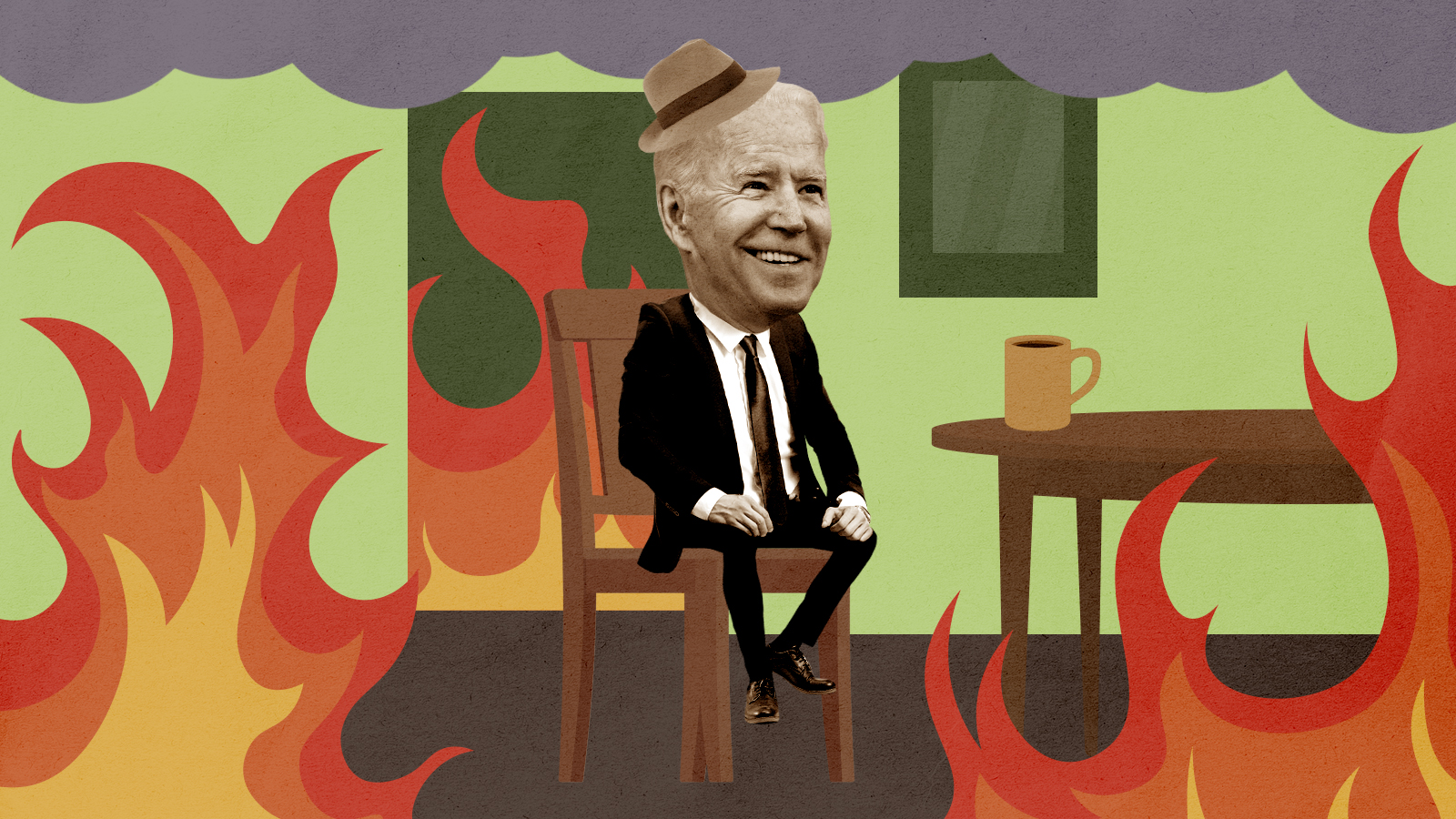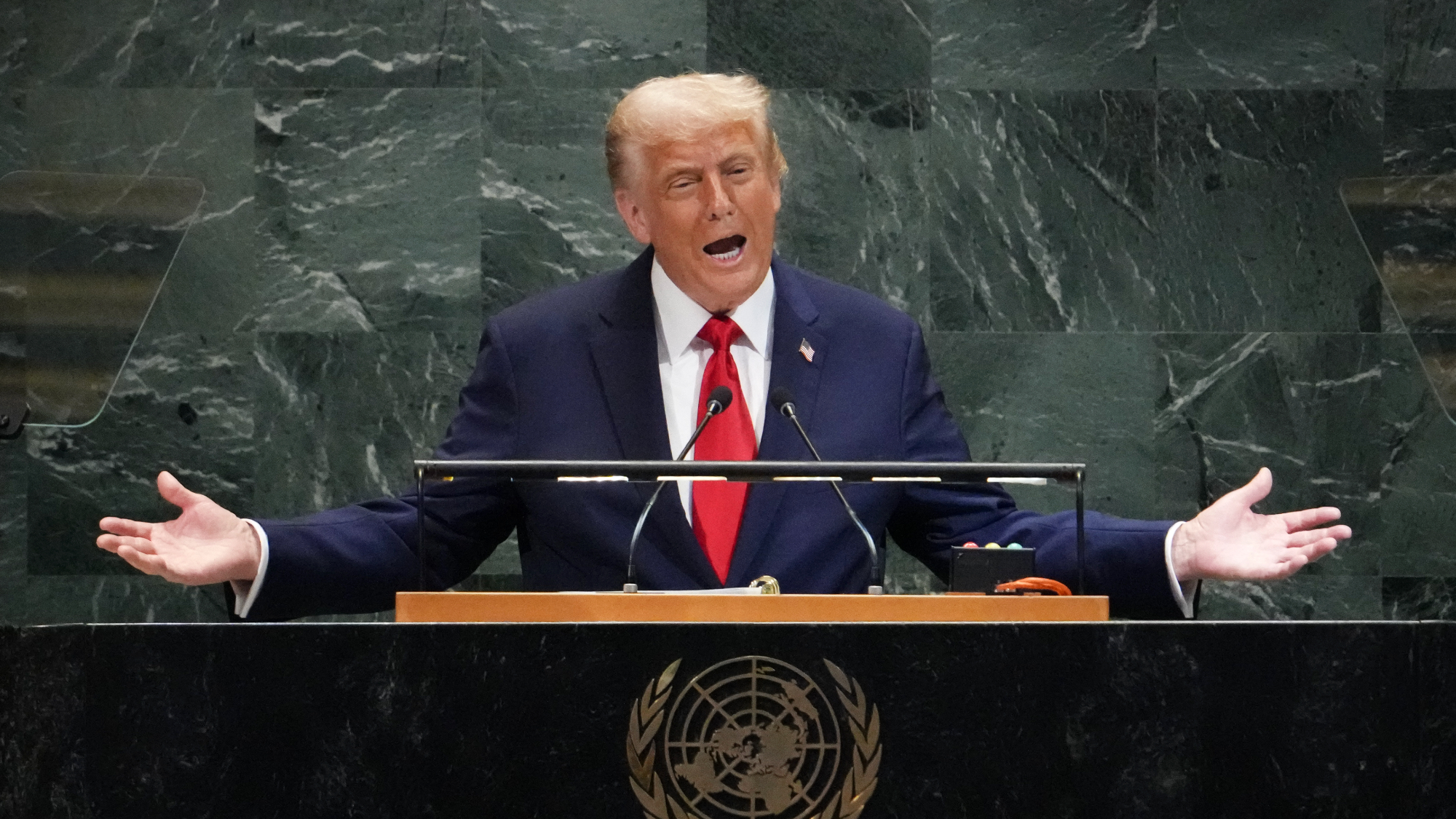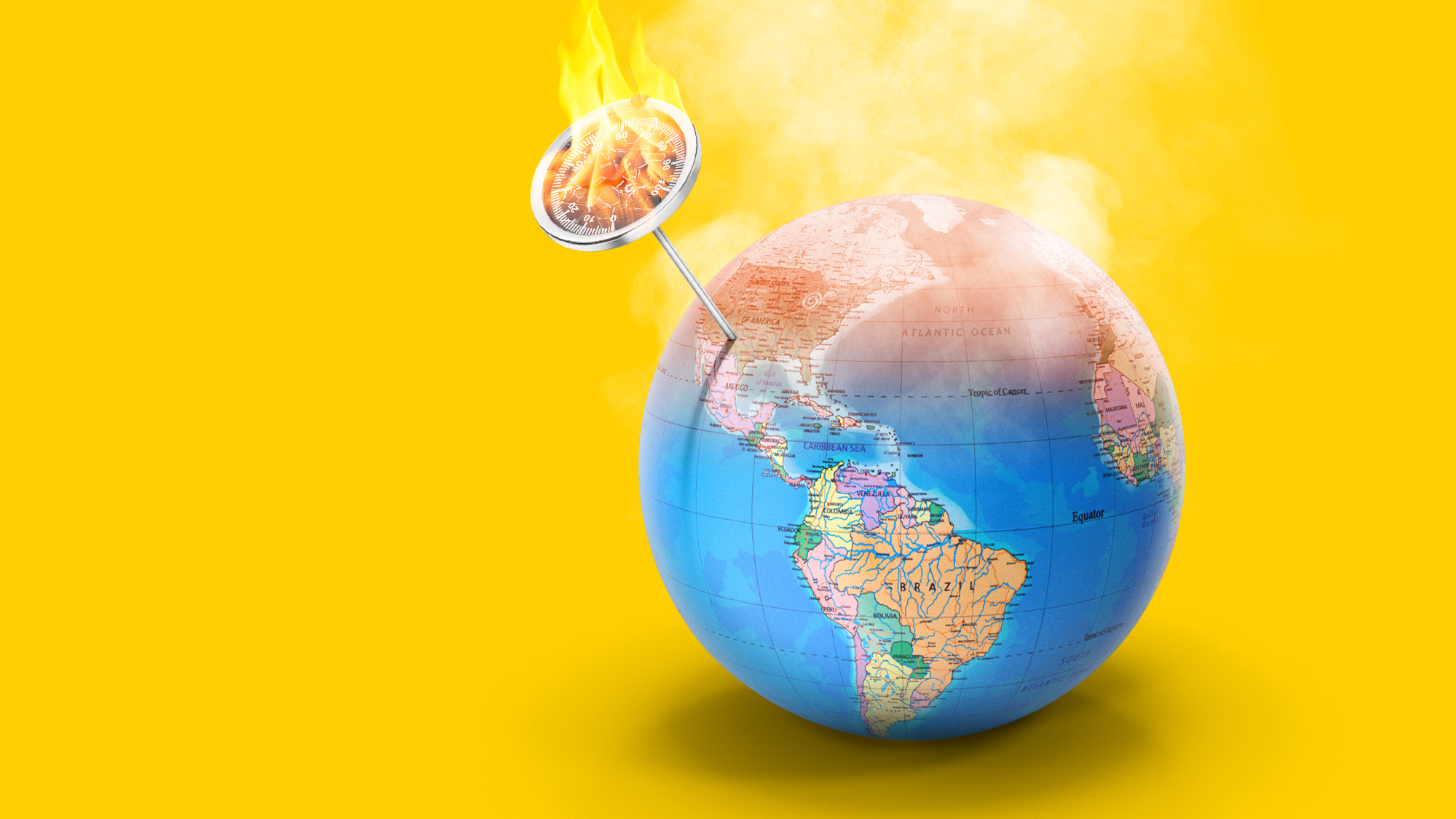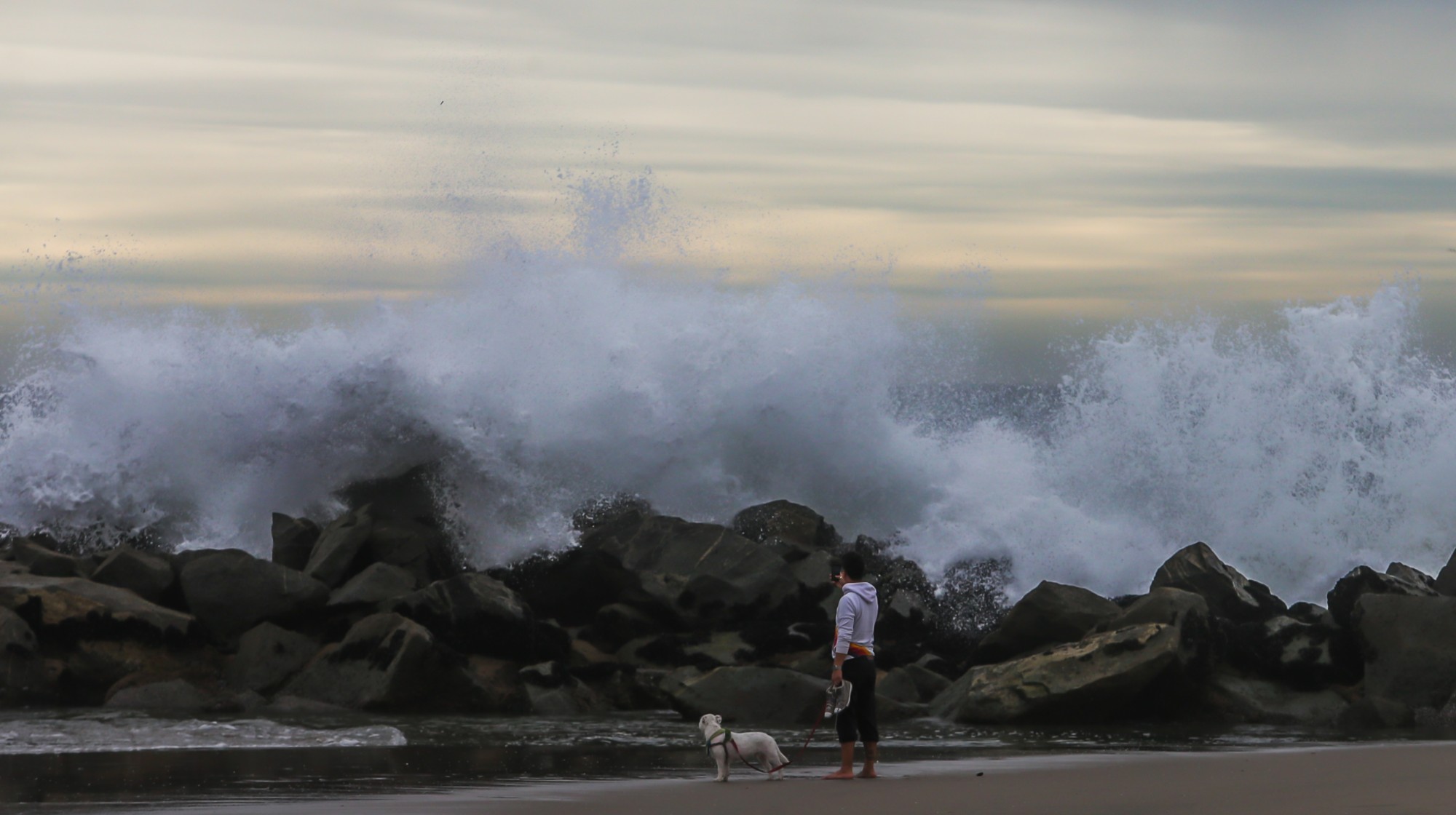Rich countries are deluded about the climate threat
The U.S., Germany, and others are learning the hard way that money does not immunize nations from climate disasters


A free daily email with the biggest news stories of the day – and the best features from TheWeek.com
You are now subscribed
Your newsletter sign-up was successful
The recent flooding in Germany and Belgium was estimated to be the worst in at least 500 years. At time of writing, some 205 people had been killed, a further 176 were missing and unlikely to be found alive, and billions of euros in property damage had been inflicted.
In the ensuing news coverage, a note of astonishment could be heard. It "is inconceivable that this is happening in Germany," a Red Cross driver told Reuters. "Did you ever imagine something like this happening here in Germany?" a CBS reporter asked a local resident. "I don't think anyone … could have imagined something like this," he replied. "There's so many people dead," another resident told a reporter. "You don't expect people to die in a flood in Germany. You expect it maybe in poor countries, but you don't expect it here."
The shock on display is reflective of a widespread and deeply-ingrained belief that climate change will not really affect rich countries. Residents of developed nations have long been accustomed to the most damaging natural disasters largely striking impoverished nations — while wealthy places may be hit by hurricanes, earthquakes, or floods, they have been largely protected by their superior building codes and well-funded emergency services.
The Week
Escape your echo chamber. Get the facts behind the news, plus analysis from multiple perspectives.

Sign up for The Week's Free Newsletters
From our morning news briefing to a weekly Good News Newsletter, get the best of The Week delivered directly to your inbox.
From our morning news briefing to a weekly Good News Newsletter, get the best of The Week delivered directly to your inbox.
But this is not the case anymore. Poor countries will be hurt worse by climate disasters, but even the wealthiest, most technologically-advanced countries are already getting hammered, and it's going to get much worse in the future.
The flood damage in Germany surprised local scientists, who have spent years and tons of money preparing for extreme flooding — and even sent out an advance warning across the affected areas. Germans "were stupidly congratulating ourselves that we were forecasting something so early," hydrologist Hannah Cloke told Science. The problem, apparently, was that researchers previously focused primarily on larger rivers which had caused prior floods, while this freak event struck tributaries that were thought to be less of a risk. (The Netherlands, luckily, had focused its flood control efforts more broadly, and therefore suffered many fewer deaths.)
The disaster was classic climate change — caused by a bizarre, slow-moving storm that dumped a stupendous amount of rain in a short time in a confined area. The changing, warming climate means there is no more "normal." Previous weather patterns are less and less useful every year, and disaster can and will strike where you least expect. Even when you've spent years building up protective mechanisms, they can easily be overwhelmed by unprecedented freak events made more likely by warming. And given that global emissions have not decreased at all, this is only the beginning.
Now, of course wealth is not useless in protecting people from climate change. No doubt if a similar flood had struck Haiti or Chad the death toll would be exponentially higher. The point is that both the governments of rich nations and their populations are in deep denial about the dire threat climate change poses to themselves.
A free daily email with the biggest news stories of the day – and the best features from TheWeek.com
The United States is the worst offender by far, of course. The nominally pro-climate policy Democrats currently run the federal government, and they are currently discussing an infrastructure package whose climate portions are something like 10 percent the size of what President Biden proposed in the 2020 campaign, and even that was not even close to enough. The current bipartisan infrastructure negotiations have stalled partially over Republican demands that the decades-old 80-20 funding split between highways and public transit — basically a climate suicide pact — be slanted even more away from transit.
All this is happening in a year in which Portland, Oregon boiled in temperatures never experienced by Atlanta or Dallas, extreme drought grips nearly half the country, another very severe wildfire season is choking the skies from Seattle to New York, and the future drowning of Miami became the deadly present drowning of Miami. We haven't even hit August yet.
But it isn't just America. If we define a rich country doing its part to fight climate change as cutting per-person carbon dioxide emissions to, say, 9 metric tons yearly (adjusted for trade effects), then here are only a handful of rich countries that have put in the work: Denmark, the U.K., France, Spain, Italy, Norway, the Netherlands, Ireland, and Sweden. Canada (which recently suffered the worst heat wave ever recorded anywhere) and Australia (where constant see-sawing between extreme drought and extreme rain recently created a horrifying plague of mice) are almost as poorly-behaved as the U.S. Germany has made only modest progress for a decade despite a big wind and solar buildout, in part because it foolishly decided to decommission its nuclear power plants before replacement renewables were ready.
People of privilege commonly cannot believe they are vulnerable to the same problems that strike down the poor, until it happens. We saw this during the pandemic, when a great many wealthy people were driven batty by the fact that they could not buy their way out of the situation. Those unfortunate Germans will not be the last people to learn that development and money do not immunize people from climate disasters.
Ryan Cooper is a national correspondent at TheWeek.com. His work has appeared in the Washington Monthly, The New Republic, and the Washington Post.
-
 Will increasing tensions with Iran boil over into war?
Will increasing tensions with Iran boil over into war?Today’s Big Question President Donald Trump has recently been threatening the country
-
 Corruption: The spy sheikh and the president
Corruption: The spy sheikh and the presidentFeature Trump is at the center of another scandal
-
 Putin’s shadow war
Putin’s shadow warFeature The Kremlin is waging a campaign of sabotage and subversion against Ukraine’s allies in the West
-
 Trump’s EPA kills legal basis for federal climate policy
Trump’s EPA kills legal basis for federal climate policySpeed Read The government’s authority to regulate several planet-warming pollutants has been repealed
-
 Trump pulls US from key climate pact, other bodies
Trump pulls US from key climate pact, other bodiesSpeed Read The White House removed dozens of organizations from US participation
-
 The billionaires’ wealth tax: a catastrophe for California?
The billionaires’ wealth tax: a catastrophe for California?Talking Point Peter Thiel and Larry Page preparing to change state residency
-
 Bari Weiss’ ‘60 Minutes’ scandal is about more than one report
Bari Weiss’ ‘60 Minutes’ scandal is about more than one reportIN THE SPOTLIGHT By blocking an approved segment on a controversial prison holding US deportees in El Salvador, the editor-in-chief of CBS News has become the main story
-
 Trump aims to take down ‘global mothership’ of climate science
Trump aims to take down ‘global mothership’ of climate scienceIN THE SPOTLIGHT By moving to dismantle Colorado’s National Center for Atmospheric Research, the White House says it is targeting ‘climate alarmism’
-
 ‘It’s ironic in so many ways’
‘It’s ironic in so many ways’Instant Opinion Opinion, comment and editorials of the day
-
 Newsom slams Trump’s climate denial at COP30
Newsom slams Trump’s climate denial at COP30speed read Trump, who has called climate change a ‘hoax,’ declined to send any officials to this week’s summit
-
 Alaska faces earth-shaking loss as seismic monitoring stations shutter
Alaska faces earth-shaking loss as seismic monitoring stations shutterIN THE SPOTLIGHT NOAA cuts have left the western seaboard without a crucial resource to measure, understand and predict tsunamis
